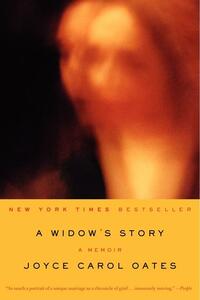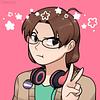You need to sign in or sign up before continuing.
Take a photo of a barcode or cover
Joan Didion's A YEAR OF MAGICAL THINKING has cast a shadow over grief memoirs that eclipses, alas, books like this one which are far more rolling & unfocused. Reading Oates' entry to the field, I was both impressed by her honesty & mildly horrified by it. The woman we meet in these pages is understandably overwhelmed by her loss, driven half crazy by it. But also, she seems to lack any compassion, any self-awareness (does she really think her friends should cease celebrating their own marriages because she herself is now a widow? *Should* the world do nothing without first contemplating how Joyce might feel about it?), any learning that might be made from losing a partner of fifty years. And when she leans from the pages to admonish the reader - "It will happen to you, too, if you are the survivor." - does she really believe she is the sole traveller into this world of grief? Does she think the rest of us have managed to skip entirely any kind of grief, that she is necessarily our first or best teacher?
Weird.
Though the book is called A WIDOW'S STORY, the last chapter is called A Widow's Handbook - an entirely inappropriate title - & Joyce consistently refers to herself as THE widow (as if she is the only one? as if she is entirely representative?), all of which adds a layer of confusion. Oates is let down by the repetition, the loose editing, and the intrusive meta-textual entries (chapters of her emails, which serve to repeat what she's already said, third-person chapter endings that seek to distance, I think, the narrator from her content).
I sound overwhelmingly negative, I know. But in fact, I felt dreadfully sorry for Oates while reading this book, & was relieved by her final paragraphs where, 6 months after the death of her husband, she meets her next husband. Thank god, I thought, because this is not a woman built for being alone.
Three stars for candour.
Weird.
Though the book is called A WIDOW'S STORY, the last chapter is called A Widow's Handbook - an entirely inappropriate title - & Joyce consistently refers to herself as THE widow (as if she is the only one? as if she is entirely representative?), all of which adds a layer of confusion. Oates is let down by the repetition, the loose editing, and the intrusive meta-textual entries (chapters of her emails, which serve to repeat what she's already said, third-person chapter endings that seek to distance, I think, the narrator from her content).
I sound overwhelmingly negative, I know. But in fact, I felt dreadfully sorry for Oates while reading this book, & was relieved by her final paragraphs where, 6 months after the death of her husband, she meets her next husband. Thank god, I thought, because this is not a woman built for being alone.
Three stars for candour.
JCO is, of course, a masterful writer and this extremely personal account is beautifully written. I only gave it three stars because it made me so fretful, being married to a wonderful man in "perfect" health (like Joyce's husband) and only a few years younger. I'm still glad I read it -- very provocative.
Having lost my husband only a week -- only a week? -- ago, I have turned to several widows' memoirs in search of comfort, advice, and maybe even a little warning of the pitfalls of grief that await me. While I did find some of those things in this memoir, I also found a woman for whom I cannot feel anything but profound distaste.
It wasn't merely her needless insertions of political diatribes, nor her claim to be appalled by racism yet her painstaking efforts to needlessly note the race of various hospital staff. In addition to those things, I found myself baffled by her claims to have had such a wonderful marriage and yet she acknowledged knowing little of her husband's past, had no respect for his religious background, had seldom shared he writing with him and knew very little of his, and hadn't even had for years the "courage" to let him know she didn't like some of the music he played in the house. What kind of a marriage was that?
When I learned that she remarried only thirteen months after Ray's death -- a fact not ever addressed and only obliquely hinted at in the final page of the book -- I was appalled. All this gnashing of teeth, tearing of hair and skin, and then a race to a new relationship? It only confirmed, to my mind, at least, that JCO truly is weak-spirited, and any literary author too afraid to explore their own psyche is not one I care to further read.
It wasn't merely her needless insertions of political diatribes, nor her claim to be appalled by racism yet her painstaking efforts to needlessly note the race of various hospital staff. In addition to those things, I found myself baffled by her claims to have had such a wonderful marriage and yet she acknowledged knowing little of her husband's past, had no respect for his religious background, had seldom shared he writing with him and knew very little of his, and hadn't even had for years the "courage" to let him know she didn't like some of the music he played in the house. What kind of a marriage was that?
When I learned that she remarried only thirteen months after Ray's death -- a fact not ever addressed and only obliquely hinted at in the final page of the book -- I was appalled. All this gnashing of teeth, tearing of hair and skin, and then a race to a new relationship? It only confirmed, to my mind, at least, that JCO truly is weak-spirited, and any literary author too afraid to explore their own psyche is not one I care to further read.
Heartrending book about the author's loss of her husband of many years to sudden illness, and the year following his death.
Wow, JCO! I just hardly know what to say here. The honesty and openness with your emotions and feelings is raw. Painful. Dark. And repetitive. I ached for you, I really did but the method you used for telling this story grated. This third person "the widow" device was bizarre and, for me, detracted from the flow and feeling. Also, I was mostly creeped out that you still refer to your (deceased) father as "Daddy". Maybe this wasn't a good time for me to read this memoir of your, as I seem to be nit-picky about the book, questioning. I am glad you got through this time and very happy you seem to be surrounded by wonderful friends. Friends can make all the difference.
emotional
reflective
sad
slow-paced
challenging
dark
emotional
reflective
sad
slow-paced
Slow, painful narrative...certainly must parallel Oates' surreal nightmare experience.
I make a habit of not reading memoirs, especially of 'famous' people - I find them rather personal, too personal, and takes such a deep look into someone who I've never met that it makes me uncomfortable as a reader - but since Joyce Carol Oates is my writing heroine, I felt compelled to pick up her memoir of life after the death of her husband, Raymond Smith. I am glad I did, or as glad as anyone can to read such a story of grief and life after death. In her usual vivid prose, Oates pulls us into the world of the widow, a world marked by absence and the burden of living on after one's significant other has passed away. Oates does not try to romanticize her experiences or comfort the reader with pulled punches; this is a work marked with emotion from start to finish without any pretense about what it is about - death, dying, loss, grief, and a culture that would rather sweep it all under the rug than look these undeniable truths in the eye. There are memoirs are then there is A Widow's Story. For anyone who has ever lost a loved one and known what it is like to live a second life after death, this is for you.





